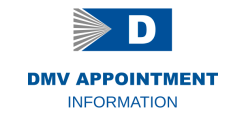Department of Motor Vehicles (DMV) in Texas
The Department of Motor Vehicles (DMV) in Texas, also known as DMV Tx, offers a wide range of services related to driver’s licenses, vehicle registration, specialty license plates, vehicle ownership transfer, vehicle history checks, vehicle inspection requirements, disabled parking permits, driver’s license renewal, change of address, commercial driver’s licenses (CDL), lost driver’s license replacement, teen driver requirements, traffic ticket payment, expired driver’s licenses, name change on driver’s licenses, driver’s license suspension, auto insurance requirements, temporary license plates, commercial vehicle licensing, traffic school/defensive driving, vehicle title transfer, Real ID, online services, organ donor registry, commercial vehicle permits, and military and veterans services.
Obtaining, renewing, or replacing a driver’s license in Texas, including the requirements, exams, and fees involved, is covered under the Driver’s License service.
To obtain a driver’s license in Texas, individuals must be at least 16 years old and pass a written knowledge test, a vision test, and a driving skills test. Identification documents, proof of residency, and proof of Social Security Number are required, and the fee for a driver’s license varies based on the type and duration of the license.
The Learner’s Permit service provides details on the process of obtaining a learner’s permit in Texas, including age requirements, necessary documents, and applicable restrictions. In Texas, individuals can apply for a learner’s permit at the age of 15. They must pass a written knowledge test and a vision test, obtain consent from a parent or guardian, and complete a driver education course. With a learner’s permit, they can practice driving under the supervision of a licensed adult.
For Vehicle Registration, information is provided on how to register a vehicle in Texas, including the required forms, fees, and specific requirements for new or imported vehicles.
To register a vehicle, individuals need to complete an application form, provide proof of ownership, proof of insurance, and a passing vehicle inspection report. The registration fee varies based on the vehicle type and weight, and additional documentation may be required for new or imported vehicles.
The Specialty License Plates service explains the different types of specialty license plates available in Texas, such as personalized or commemorative plates, and provides steps to apply for them.
Texas offers various specialty license plates, including personalized plates, specialty design plates, and specialty organization plates. To apply for a specialty plate, individuals need to complete the appropriate application form, pay associated fees, and meet specific requirements, such as supporting a charitable cause or being a member of a certain organization.
Guidance on transferring vehicle ownership is provided under the Vehicle Ownership Transfer service, including necessary documents, applicable fees, and deadlines.
To transfer vehicle ownership in Texas, both the buyer and the seller must sign the title document, and a bill of sale may be required. Necessary forms must be completed, the transfer fee must be paid, and the documents must be submitted to the county tax office within 30 days of the sale. The buyer is then responsible for registering the vehicle in their name.
The Vehicle History Check service offers information on how to obtain a vehicle history report in Texas, providing details on previous ownership records, accidents, damages, and more.
Individuals can obtain a vehicle history report from the Texas Department of Motor Vehicles (TxDMV) by submitting a request and paying a fee. The report includes information on previous owners, accident history, title brands, and any reported damages, which can help make an informed decision when purchasing a used vehicle.
The Vehicle Inspection Requirements service describes the vehicle inspection requirements in Texas, including emissions, safety, and deadlines for completing the inspection.
Vehicles in Texas are required to undergo an annual safety inspection, and certain counties also require emissions testing. These inspections are performed at licensed inspection stations, and it is important to complete them before the deadline to avoid penalties or registration issues.
Information on obtaining a disabled parking permit for individuals with disabilities, including benefits and designated parking locations, is provided under the Disabled Parking Permit service.
To obtain a disabled parking permit in Texas, individuals must complete an application form signed by a medical professional certifying their disability. The permit allows parking in designated accessible spaces, providing convenient access to buildings and facilities, and these spaces are clearly marked with the international symbol of accessibility.
The Driver’s License Renewal service outlines the steps and available options for renewing a driver’s license in Texas, including online renewal, documentation requirements, and applicable fees.
Renewal can be done online, by mail, or in person at a local driver’s license office. The process typically involves submitting an application, providing proof of identity, residency, and Social Security Number, and paying the renewal fee. The fee and renewal period may vary depending on age and license type.
The Change of Address service explains the procedure for changing the address on a driver’s license and vehicle registration, including updating methods and required timelines.
Individuals who have changed their address in Texas must update it on both their driver’s license and vehicle registration within 30 days. Address updates can be done online, by mail, or in person at a local driver’s license office or county tax office. Proof of residency may be required.
For obtaining a commercial driver’s license (CDL) in Texas, the CDL service provides information on specific requirements, necessary exams, and applicable fees.
To obtain a CDL, individuals must be at least 18 years old for intrastate driving or 21 years old for interstate driving. They must pass a written knowledge test, a skills test (including a pre-trip inspection, basic control skills, and an on-road driving test), and may need additional endorsements for certain commercial vehicles. CDL fees vary based on the class and endorsements.
The Lost Driver’s License Replacement service outlines the steps to replace a lost or stolen driver’s license in Texas, including required documents and application procedures.
If a driver’s license is lost or stolen, individuals can apply for a replacement online, by mail, or in person. They must complete an application form, provide proof of identification, residency, and Social Security Number, and pay the replacement fee. Once the application is processed, a new driver’s license will be issued.
Specific requirements for teen drivers in Texas, including the provisional license program and applicable restrictions, are covered under the Teen Driver Requirements service.
Teen drivers must follow the graduated driver license (GDL) program, which consists of a learner’s permit phase, an intermediate phase, and a full driver’s license phase. Various restrictions, such as curfew hours, passenger limitations, and mandatory driver education and training, apply at different stages of the program.
Information on how to pay traffic tickets in Texas, including payment options, deadlines, and consequences for non-payment, is provided under the Traffic Ticket Payment service.
When receiving a traffic ticket, individuals typically have the option to pay the fine online, by mail, or in person. Payment can be made using credit/debit cards, checks, or money orders. It is important to pay the fine by the specified deadline to avoid additional penalties, such as license suspension or warrants.
The Expired Driver’s License service explains the available options when a driver’s license is expired in Texas, including the grace period and penalties for driving with an expired license.
In Texas, there is a grace period of 60 days after a driver’s license expires to renew it without any penalties. During this grace period, individuals can still legally drive with their expired license. However, driving with an expired license beyond the grace period may result in penalties and fines if stopped by law enforcement.
The Name Change on Driver’s License service provides the process for changing the name on a driver’s license in Texas due to marriage, divorce, or other legal reasons.
To change the name on a driver’s license, individuals need to visit a local driver’s license office in person. They must provide documentation such as their current driver’s license, proof of the name change (such as a marriage certificate or court order), and other required identification documents. A fee may also be applicable for the updated driver’s license.
Information on common causes of driver’s license suspension in Texas, how to reinstate a suspended license, and specific requirements to be met can be found under the Driver’s License Suspension service.
Driver’s license suspension in Texas can occur due to various reasons, such as driving under the influence (DUI), excessive traffic violations, failure to maintain auto insurance, or non-payment of fines. To reinstate a suspended license, individuals must fulfill specific requirements set by the Texas Department of Public Safety (DPS), which may include completing an alcohol education program, paying fines, or providing proof of insurance.
The Auto Insurance Requirements service explains the auto insurance requirements in Texas, including the minimum coverage limits and the obligation to maintain valid insurance.
In Texas, drivers are required to carry auto insurance with minimum liability coverage. The current minimum limits are 30/60/25, which means at least $30,000 per person for bodily injury, $60,000 per accident for bodily injury, and $25,000 per accident for property damage. It is important to maintain valid auto insurance and carry proof of insurance while driving in Texas.
Information on temporary license plates in Texas, including how to obtain them, validity periods, and circumstances in which they are issued, is provided under the Temporary License Plates service.
Temporary license plates, also known as «buyer tags» or «paper tags,» are issued by licensed dealers when a vehicle is purchased. They allow the vehicle to be driven legally while awaiting permanent registration. Temporary plates are valid for a specific period, typically 30 days, during which the vehicle must be registered and permanent license plates obtained.
The Commercial Vehicle Licensing service provides details on the process of licensing commercial vehicles in Texas, including specific requirements, necessary exams, and applicable fees.
Commercial vehicles in Texas require specialized licensing, and the specific requirements depend on the type and weight of the commercial vehicle. This may include obtaining a commercial driver’s license (CDL), completing additional endorsements, passing written and skills exams, and meeting medical qualifications. The fees for commercial vehicle licensing vary based on the license type and endorsements.
Information on attending traffic school or defensive driving courses in Texas, including eligibility, benefits, and how to enroll, can be found under the Traffic School/Defensive Driving service.
In Texas, individuals may be eligible to attend a defensive driving course or traffic school to dismiss a traffic ticket or receive a discount on insurance premiums. These courses cover safe driving practices, traffic laws, and defensive driving techniques. To enroll, individuals need to find a Texas Department of Licensing and Regulation (TDLR) approved course provider and complete the required hours of instruction.
The Vehicle Title Transfer service provides guidance on how to transfer the title of a vehicle in Texas, including necessary forms, fees, and steps to complete the transfer.
When transferring the title of a vehicle, individuals need to complete a title transfer form, provide the buyer with a properly signed title, and submit the necessary documents to the county tax office. Additionally, a title transfer fee may be required. It is important to complete the title transfer accurately and promptly to ensure a smooth ownership transition.
For information on obtaining a Real ID-compliant driver’s license or identification card in Texas, including documentation requirements and benefits, you can refer to the Real ID service.
The Real ID Act establishes new security standards for driver’s licenses and identification cards. To obtain a Real ID-compliant card, individuals need to provide specific documents to prove their identity, Social Security Number, and residency. Real ID-compliant cards are required for certain federal purposes, such as boarding domestic flights or accessing federal facilities.
The Texas DMV website offers a range of Online Services, including license renewal, address change, registration renewal, appointment scheduling, and access to driving records.
These online services provide a convenient and time-saving option for completing DMV-related tasks from the comfort of your home.
Information on joining the organ donor registry in Texas, including the importance of organ donation, registration process, and frequently asked questions, is provided under the Organ Donor Registry service.
Joining the organ donor registry allows individuals to express their intent to donate organs and tissues for transplantation after their death. In Texas, individuals can register as an organ donor through the Donate Life Texas registry. Understanding the importance of organ donation, how it saves lives, and the steps to register are crucial.
Details on obtaining permits for commercial vehicles in Texas, such as oversize/overweight permits or temporary operating authority for carriers, can be found under the Commercial Vehicle Permits service.
Certain commercial vehicles in Texas may require additional permits for legal operation. This includes oversize/overweight permits for large or heavy loads and temporary operating authority for carriers entering the state. The specific permits and requirements vary based on the type and size of the commercial vehicle. It is important to obtain the necessary permits before operating the vehicle.
The Military and Veterans Services provide information on special services and benefits available to military personnel, veterans, and their families through the Texas DMV.
These services may include military-themed license plate options, exemptions from certain fees or requirements, and expedited processing for military-related transactions. They aim to recognize and support the contributions and sacrifices of the military community.



